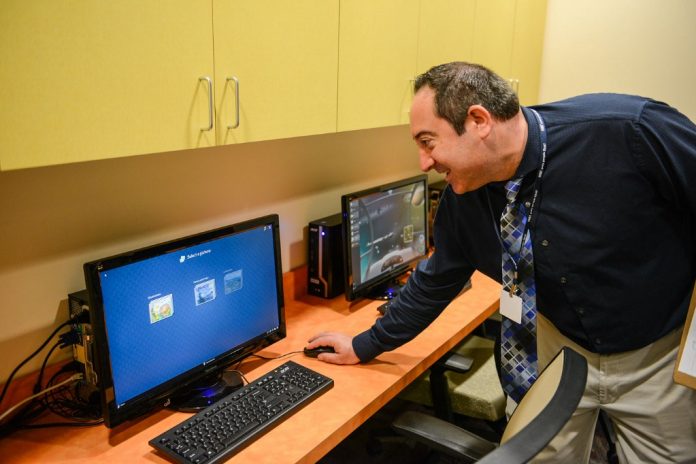Helping the mind and body: Steve Tzorfas shows available programs on the computers in the children’s room at the new NET Steps center at 7520 State Road. The facility will soon open its doors to heroin and pain pill abusers for opiate addiction treatment.
A 60,000-square-foot former paint and varnish plant, tucked between Sweet Lucy’s Smokehouse and a former discount doors warehouse on State Road, has become Northeast Philadelphia’s newest nexus of struggle.
With the ceremonial opening of NorthEast Treatment Centers’ second NET Steps recovery facility on Friday, hundreds of heroin and pain pill abusers will soon flock there trying to break the stranglehold of opiate addiction while their care providers defy an enduring public stigma associated with the physiological disease.
Residents, businesses and community organizations from the surrounding neighborhoods have been struggling, too, and will continue to do so as they weigh compassion with fear - — their honest recognition that so many of their neighbors need better access to treatment, juxtaposed with their understanding of the community-crushing potential of a mismanaged methadone dispensary.
“I hope this will be a model for community partnership moving forward,” said Regan P. Kelly, NET Centers’ president and CEO, during Friday’s ribbon-cutting reception. Medication-assisted treatment “is often a lifesaver for many people.”
“The struggle for this program is to get to the journey. Now the journey begins,” said Roland Lamb, director of the city’s Office of Addiction Services.
Technically, the new NET Steps center at 7520 State Road still has some hurdles to clear before it can be fully operational. The federal government and state must approve the facility. A joint inspection by the Drug Enforcement Administration, the Center for Substance Abuse Treatment and the Pennsylvania Department of Health is expected within the next few weeks, according to NET Steps Director John Carroll.
When asked how many addicts the center will serve, Carroll replied that his nonprofit organization emphasizes quality of treatment over quantity.
“Our thing is outcomes. We expect people to be living a recovery lifestyle,” Carroll said.
Typically, government overseers want them to start out small, see how things go and increase capacity over time. Indeed, the new center occupies only about half of the old varnish plant. Besides the dominant addiction treatment component, NET plans to open a child autism program in a separate portion of the property. The building has a community meeting room, too, and could eventually house medical and dental offices.
Lamb said that Addiction Services has contracted with NET Steps to treat up to 350 people per day on State Road, although that will satisfy only a fraction of the need in the immediate area. The city office has identified more than 750 people from five Northeast ZIP codes who travel elsewhere for medication-assisted treatment. They are among more than 5,000 clients served by 13 other city-contracted facilities.
The five ZIP codes cited by Lamb include 19111, 19114, 19115, 19116 and 19136. The State Road facility doesn’t have a strict catchment area, “but we made a commitment that we would look for and prioritize people from the Northeast,” Lamb said.
Maintaining a localized mission was one of the main issues for cynical neighbors, who have been fighting the proliferation of methadone clinics — both nonprofit and for-profit — in the area for years. The new NET Steps site was seven years in the making and ultimately led to the creation of a neighborhood advisory committee comprised of civic association leaders, business people, elected officials and NET administrators.
“We’ve somewhat been able to change the message about addiction and medication-assisted services,” Lamb said.
Originally, NET wanted to open a clinic in a medical office building at Roosevelt Boulevard and Grant Avenue. Neighbors learned of the plan in early 2009 and protested vociferously. About 1,500 folks packed the Anne Frank School auditorium that February for a community meeting arranged by Councilwoman Maria Quinones-Sanchez. Neighbors argued that the site was too close to houses and day care centers for a drug treatment clinic. They didn’t want it to become a magnet for addicts from outside the neighborhood. They didn’t want it to attract crime. They didn’t want it to become an eyesore and reduce their property values. Facing strong opposition, NET officials agreed to table their plans and look for a different location.
“There was a lot of misinformation and hysteria. I don’t blame neighbors for having anxiety,” Lamb said.
“You have some bad providers who give (the good ones) a bad name,” Carroll said.
Carroll laments what might have been. After all, the Grant Avenue site was already designated for medical use, and opiate addiction is a medical condition.
“Our first location was my pick. (But) when various stakeholders get together, there’s going to be compromise,” he said.
The State Road spot became Plan B. It’s in a commercial and industrial strip bounded on one side by a busy commuter railroad and on the other by Interstate 95, midway between Rhawn Street and Cottman Avenue. There don’t seem to be any homes, daycare centers or schools in the immediate area. It has some advantages for the clinic, too.
“It’s accessible, low-profile, secure and it’s confidential,” Carroll said.
Security and public safety are high priorities. Parking is off street, private and fenced. There are 39 security cameras inside and outside the building. Five full-time “facilities technicians” will patrol the property, inside and out, each day. In the beginning, the clinic will be open daily from about 6 a.m. to noon. Hours will be extended eventually.
“If they’re a patient here, we don’t allow any hanging around. We have stuff for them to do,” Carroll said.
Everyone is conscious of making a good first impression.
“We all have to do a good job with the community,” Carroll said, “and it will require dedication and focus.” ••
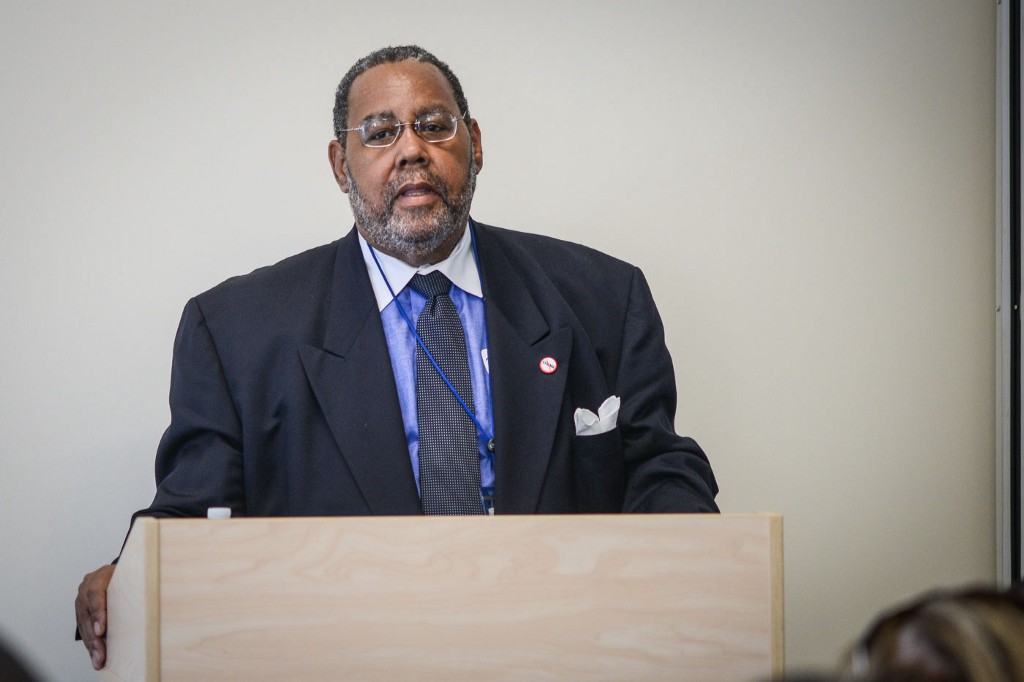
Roland Lamb, director of the city’s Office of Addiction Services, discusses the state-of-the-art clinic.
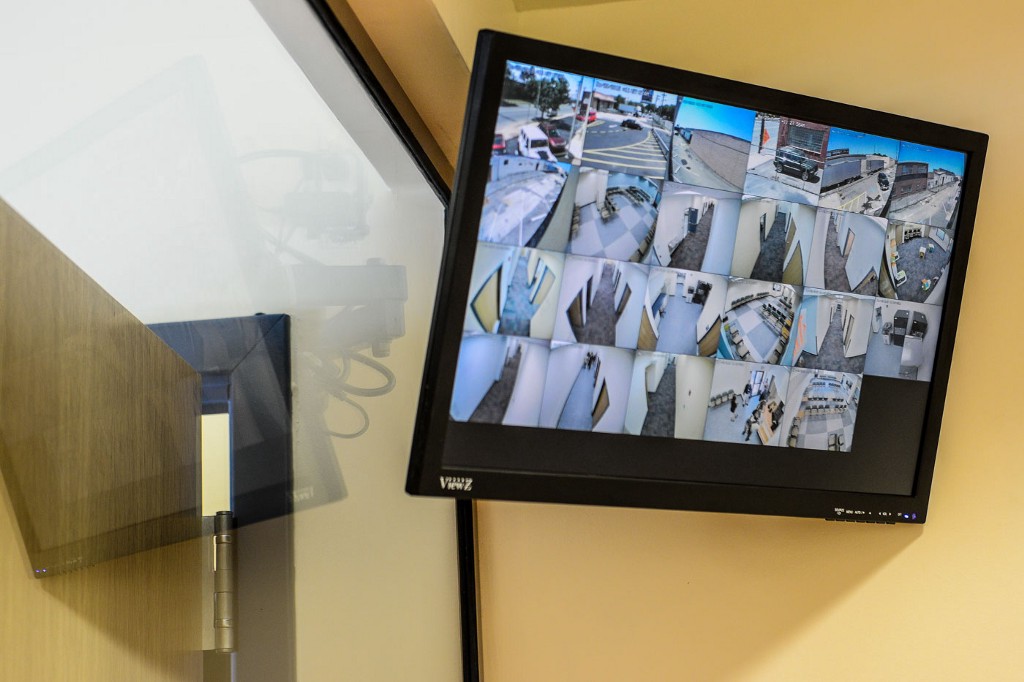
There are 39 security cameras.
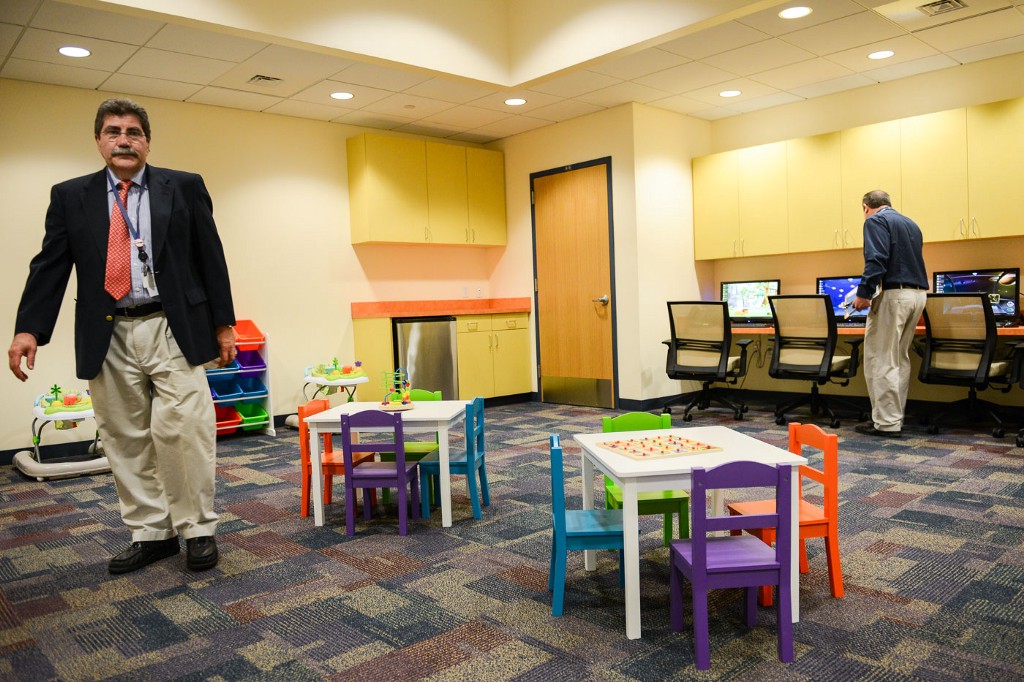
The facility includes a children’s playroom.
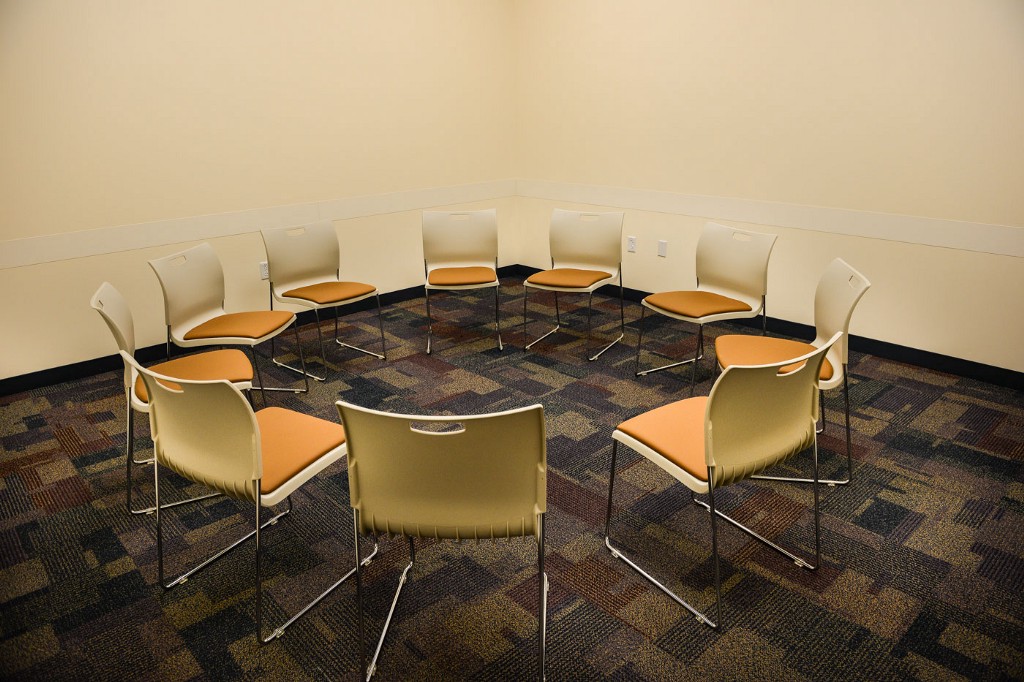
Addiction services: NorthEast Treatment Centers’ second NET Steps recovery facility held a ceremonial opening on Friday. MARIA POUCHNIKOVA / TIMES PHOTOS



